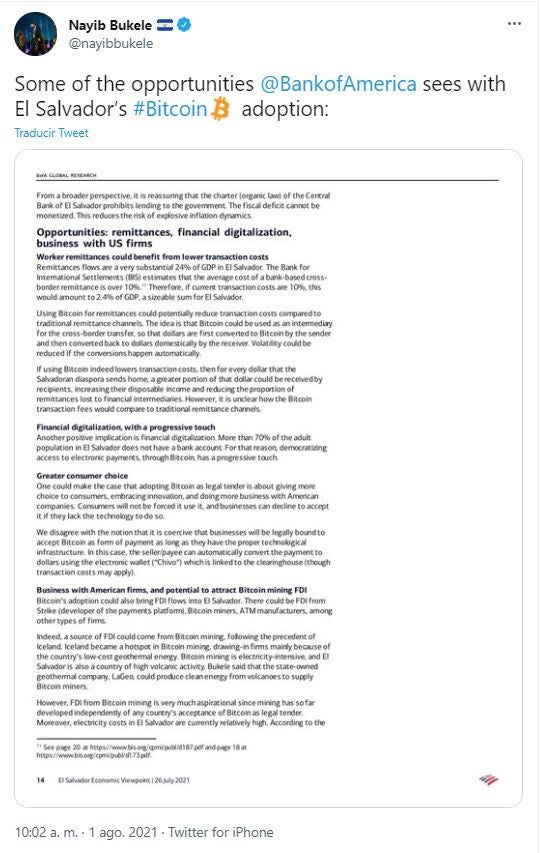“More than 70% of the adult population of El Salvador does not have a bank account,” reads the latest Global Research report from Bank of America. “For that reason, democratizing access to electronic payments, through Bitcoin, has a progressive touch.”
El Salvador stands to gain a lot from Bank of America’s foray into Bitcoin (BTC) with its latest investment.

Bank of America analysts said El Salvador’s decision to recognize BTC as legal tender could simplify remittances, promote financial digitization, and allow companies and miners from the US to set up shop there.
As noted by the bank, remittances account for 24 percent of El Salvador’s GDP, but most of those funds are spent on transaction fees.

“Using Bitcoin for remittances could potentially reduce transaction costs compared to traditional remittance channels,” the report said, according to an image provided by state-backed Diario El Salvador. “The idea is that Bitcoin could be used as an intermediary for the cross-border transfer so that dollars are converted to Bitcoin by the sender and then converted back to dollars domestically by the receiver.”
It was announced in June that El Salvador became the first nation-state to accept Bitcoins as legal tender, marking a major milestone in the evolution of the digital currency from obscurity to mainstream acceptance. In addition to the International Monetary Fund and U.N.’s Economic Commission for Latin America and the Caribbean criticizing the decision, BTC is also sought to be integrated into the financial system of the country. While El Salvador’s Bitcoin gamble could exacerbate the network’s already limited capacity to serve as a medium of exchange, JPMorgan Chase believes the move could put more pressure on the network.





